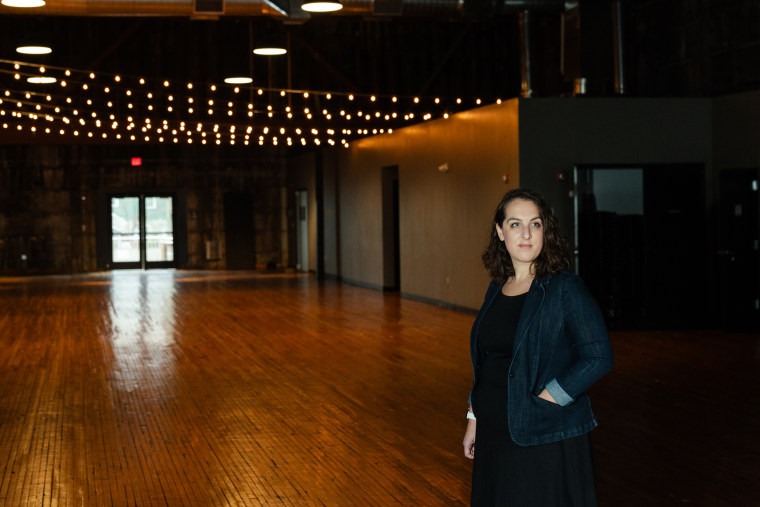But some gay couples say they fear that after it overturned Roe v. Wade in 2022, unraveling half a century of legal precedent, the Supreme Court will rescind their right to marry next.
Those concerns were stoked in 2020 when Justices Clarence Thomas and Samuel Alito issued blistering rebukes of Obergefell and signaled that they would be open to reversing it. Thomas again expressed an interest in overturning Obergefell in his concurring opinion in the decision to overturn Roe.
Mary Bonauto, who argued on behalf of same-sex couples in Obergefell and now serves as the civil rights project director at GLBTQ Legal Advocates & Defenders, or GLAD, dismissed the idea that the same-sex marriage ruling will be overturned.
“I understand that there are things about these times that introduce a lot of uncertainty in people’s lives. I understand that,” she added. “But right now, and certainly for the foreseeable future, marriage equality is not one of the things that would change.”
While fear among some gay and lesbian couples is real, it’s unclear if the incoming Trump administration has the appetite to roll back the legalization of same-sex marriage. Trump himself has not indicated that he intends to do so.
Allies of the former and incoming president point to his Cabinet picks — including Scott Bessent, who is gay and married, for treasury secretary — and the same-sex weddings hosted at Mar-a-Lago, Trump’s resort in Palm Beach, Florida, in recent years. The GOP also removed language that had been in its platform for decades that explicitly defined marriage as being between “one man and one woman.”

But during his first administration, Trump did enact policies that advocates say harmed LGBTQ people as a whole and particularly transgender Americans. He banned transgender Americans from enlisting in the U.S. military and ended some discrimination protections for LGBTQ people in school and in health care settings.
On the campaign trail, Trump vowed to reinstate a ban on trans people from enlisting in the military, abolish gender-affirming care for transgender minors — which he has repeatedly described as “child abuse” and “child sexual mutilation” — and roll back Title IX protections for transgender students “on Day One.”
“The people quoted in this story are sadly mistaken and have fallen for the fear mongering from the media, which seeks to divide Americans based on identity politics,” Karoline Leavitt, Trump’s spokesperson and incoming press secretary, said in an email. “President Trump will be a president for ALL Americans and wants to unify our country through success.”
When pressed on whether the president plans to roll back legalized marriage for same-sex couples, Leavitt said: “That was never a campaign promise that he made.”
Bonauto pointed to safeguards lawmakers have put in place to protect same-sex marriage in the event that the high court decides to rescind Obergefell.

Congress and the Biden administration enacted the bipartisan Respect for Marriage Act in 2022 to codify federal protections for same-sex and interracial marriages under federal law. Several states have also taken up measures in recent years to protect same-sex marriage, either by enshrining the right into state constitutions or by striking down defunct laws that once prohibited same-sex marriage.
Nonetheless, concern among same-sex couples remains.
Michael Kaye, 32, who works for a dating app conglomerate in New York City , spent the weekend after the election on the phone with attorneys and people who work on Capitol Hill and in the LGBTQ nonprofit space, asking them whether he and his fiancé should get married before their scheduled wedding date in June. The pair are “strongly considering” eloping before Inauguration Day, Kaye said.
“It just feels like we took a step backwards and that fear is resurfacing,” Kaye said. “And it might be a different fear than I felt like when I was in middle school or in high school, but I just feel like there is this fear again around the queer experience.”
